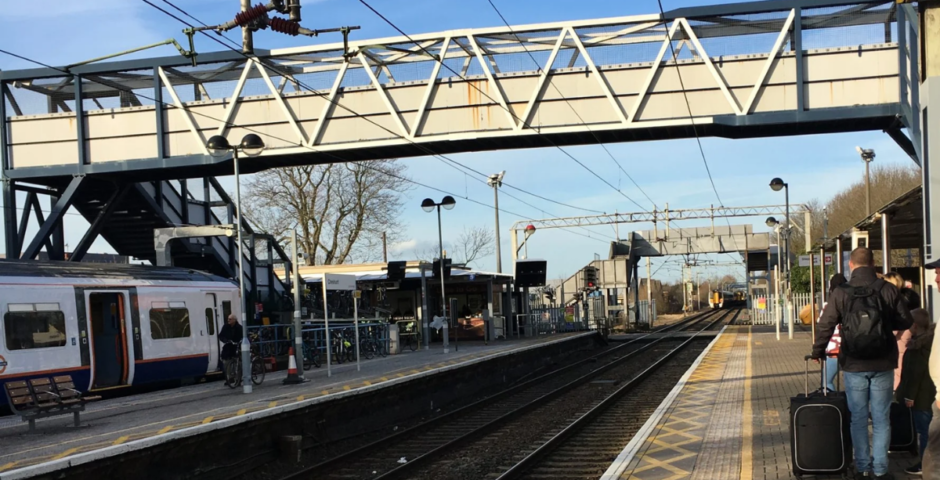
77 per cent of Cambridge students would have chosen online interviews
Online vs. IRL: Let’s Zoom in on the future of the Cambridge interview
The effects of the COVID-19 pandemic have been long-lasting and life-changing. With lockdown after seemingly never-ending lockdown, each of us has been forced to consider how we do the things we used to take for granted and fail to question. But maybe this isn’t such a bad thing after all…
With University interviews being moved online as a consequence of this Brave New World we now live in, swapping navigating a new city for navigating new technology admittedly came with its fair share of problems. However, with 77 per cent of the 303 students we surveyed saying that they would have actually opted for an online interview over an in-person one if they had the choice, it seems that perhaps the pandemic acted as a long-overdue call to action.

Nearly all of the comments we received regarding online interviews centred around several key themes, and with trains, planes and automobiles being traded in for simply opening your laptop, it was clear that online interviews removed a lot of unnecessary stress.
Removing these logistical hurdles also increased access for those in situations which made it difficult for them to make the journey to Cambridge. This allowed a more diverse array of candidates from broader geographical and financial backgrounds to apply.
For many, the journey to Cambridge, coupled with a stay in an unfamiliar place became an exhausting sideshow, stealing them away from the main event: the interview itself. For neurodivergent students or those with disabilities, the whole experience has the potential to pose extreme and detrimental challenges in comparison to a familiar environment.

When taking all this into consideration, it certainly seems as though the online interview may be here to stay. It seems to be the convenient and well-meaning answer to issues of access and equal opportunity, whilst also acting as a blessing in disguise to the Colleges, which no longer have to accommodate hundreds of candidates year on year. However, ‘seems’ maybe the keyword here.
The issues of access and equal opportunity have not simply gone away with the click of a mouse but have arguably just been moved out of the eyeline of the University.
Where once Colleges were on hand to help with logistical struggles and financial reimbursements if necessary, with online interviews – it’s no longer their problem. Where for some, questions of finding a quiet venue, a working device or even decent internet may answer themselves, for others, this is the stuff of many a sleepless night.
And like many inventions of a post-outbreak world, when problems arise, it can be impossible to know where to turn to fix them. As I wasn’t able to have my interview at home, it was held in a section of the temporary staff room, and with a German class next door and several teachers walking in midway through thinking that was where they kept the biscuits – an online interview certainly did very little for me in the way of reducing stress!

Issues such as Wi-Fi and technical troubles pose problems on the other end too. How is an interviewer to decide who performed better when one candidate is hindered by poor connection or a faulty laptop? Or what if their own internet is the culprit? Many of us have fallen victim to the whims of Eduroam, and indeed some candidates experienced this first-hand in their interviews as that all-important question was lost to the hands of a Wi-Fi hiccup.
Over half of our surveyed students also commented on the communication difficulties an online interview presented, and this comes as no surprise. We are by now all too familiar with the rather jarring Zoom faux pas of seven people speaking at once, followed by gaping silence and awkward apology – an experience made even worse if it just happens to coincide with an extremely important interview!
Aside from the obvious issues of actually knowing when to speak, online interviews also arguably fail to provide a full sense of what a candidate is really like – in the absence of real-life connection, is it truly fair to base the outcome of an interview on less than half of an applicant’s communication?
When looking to the future of the Cambridge interview, fairness does seem to be the keyword. And as we prepare to navigate a post-COVID world, the changes we have been forced to make have started long overdue conversations regarding how we can use such change for the better and what we should choose to do differently.
And while it does seem as though a future of online interviews may provide answers to issues which once made the application process restrictive and at times unnecessarily stressful, it seems that it may spark just many questions…
All Image Credits: Izzy Grout
Articles recommended by this author:
May Ball Presidents’ Committee addresses student concerns
A comp-rehensive review: Cambridge from a state school perspective
Some rules must be broken: why an outdated tradition at college formals needs to be abolished









































